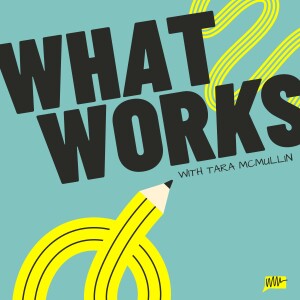
Self-help is everywhere. But for a long time, I tried to avoid it. "I just focus on business," I'd say. What I didn't realize back then was how much the structure, grammar, and discourse of personal growth permeate every layer of a business—and the entrepreneur behind it.
Self-help sells. It's an $11 billion industry that's predicted to go to $14 billion in the next 3 years.
And that's only counting products and services that are sold under the banner of "self-help." Even bigger than the explicit "live your best life" market is the valence of messaging, media, and cultural ventures that orbit it. In fact, there is a very good chance that, in one way or another, you and your work are part of the greater self-help ecosystem.
You don't have to be a life coach, motivational speaker, momfluencer, or day planner designer to produce products and services that tap into the desire for a better, easier, or more fulfilling life. You might be a copywriter that leverages personal growth messaging in the copy you write. You might be a non-profit director that leverages donors' desire to "make a difference" to raise funds. You might be a management consultant that helps companies build better workplace cultures so employees feel a greater sense of purpose.
Or, like your humble podcast host, you might one day make the startling discovery that: yes, you wrote a self-help book after more than a decade of declaring that you help people build better businesses, not better lives.
I've gotten really curious about the business and politics of self-help. What makes self-help-inspired messaging so effective? Why are we constantly on the lookout for better ways to live and work? What compels us to follow aspirational Instagram accounts? Are we all in the self-help business?
Next up on What Works, I have an 8-part series called Self-Help, LLC. It's a look at how the gospel of self-improvement shapes our lives, our work, and the businesses we're building
I talk with writer Sara Petersen about Momfluencing, sociologist Patrick Sheehan about the coaching industry and backlash to credentialed experts, and brand strategist India Jackson about how our bodies are shaped by self-help. I also talk with Nine Types Co founder Steph Barron Hall about the draw of self-knowledge on Instagram, coach and writer Kelly Diels about the female lifestyle empowerment brand, and coach and author Jadah Sellner about the politics of hustle culture.
My intention is that this series gives you a fresh perspective on what you create, what you consume, and how the underlying values of self-help culture influence them both. We'll dig into the business models behind explicitly self-help ventures and examine how less explicit personal growth businesses build on self-help's logic.
The first episode in this series—Winners and Losers—drops September 6. Make sure you hit "follow" in your favorite podcast player and share the show with a friend who loves to think critically about the world we live in.
★ Support this podcast ★
More Episodes
 2024-10-17
2024-10-17
 2024-10-10
2024-10-10
 2024-09-26
2024-09-26
 2024-09-20
2024-09-20
 2024-09-12
2024-09-12
 2024-08-22
2024-08-22
 2024-08-15
2024-08-15
 2024-08-01
2024-08-01
 2024-05-16
2024-05-16
 2024-05-02
2024-05-02
 2024-04-19
2024-04-19
Create your
podcast in
minutes
- Full-featured podcast site
- Unlimited storage and bandwidth
- Comprehensive podcast stats
- Distribute to Apple Podcasts, Spotify, and more
- Make money with your podcast
It is Free
- Privacy Policy
- Cookie Policy
- Terms of Use
- Consent Preferences
- Copyright © 2015-2024 Podbean.com






